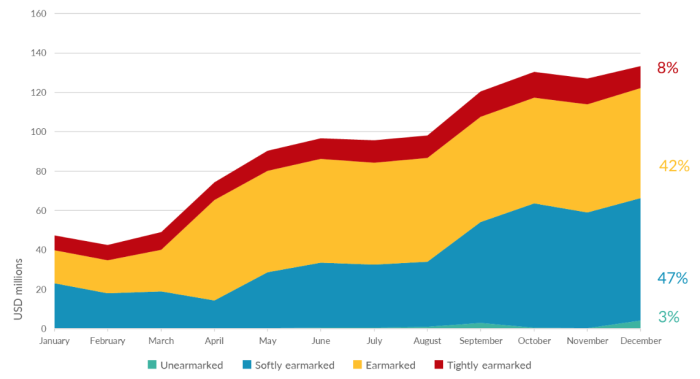Pakistan is one of the largest refugee-hosting countries in the world, providing safety to around 1.3 million registered Afghan refugees. The country remained on high alert in 2022 over potential mass refugee influxes from Afghanistan and spillover security risks, with periodic fighting along the border and ensuing border closures throughout the year. Pakistan also saw considerable domestic turmoil on economic, political, environmental and security fronts – including the change in government in April 2022, rising inflation, the drop of Central Bank reserves to historic lows, currency devaluation, uncertainty with the International Monetary Fund on debt relief, and the resurgence of domestic terrorism.
Pakistan is also amongst the ten countries most affected by extreme weather. From mid-June 2022, unprecedented monsoon rains caused flooding and landslides across the country. The amount of rainfall was 190% higher than the 30-year average. It affected 33 million people, including an estimated 800,000 refugees, mostly in Balochistan, Khyber Pakhtunkhwa and Sindh provinces.
In September, UNHCR issued a Supplementary Appeal urgently seeking $65.8 million to help more than 650,000 Afghan refugees and their host communities affected by the floods, covering the period September 2022 to December 2023.

In 2022, Pakistan received the largest portion of flexible funding in the Asia and the Pacific region, amounting to $48.5 million. In absolute terms, the largest allocations went towards education, with flexible funding accounting for $9 million out of expenditure of $11.8 million, and resettlement, which received $8.5 million in flexible funding towards a total of $12.5 million of expenditure. These allocations enabled UNHCR to massively increase its refugee resettlement effort, from seven submissions of refugees in Pakistan in 2021 to 3,504 in 2022, and to continue supporting 144 refugee village schools, reaching 49,352 primary and 6,057 secondary aged children, with 39% female enrolment.
As a proportion of the total expenditure during the year, two areas of activity relied on even greater infusions of flexible funding. In health, flexible funding was the source of 97% of UNHCR's $5.1 million expenditure, financing investments in health equipment and infrastructure for health facilities used by refugees, in support of the Government of Pakistan's policy of granting them access to public health services. UNHCR’s work in sustainable housing and settlements also relied heavily on flexible funding, which was the source of 87% of the $5.8 million spent during the year, including investments in solarization, energy-efficient cooking stoves and solar lamps.
While flexible funding proved critical to provide life-saving assistance to flood-affected populations, there is a pressing need for long-term solutions for Afghan refugees, many of whom have been living in displacement since the late 1970s.